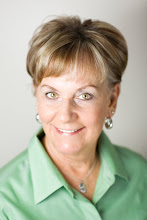School’s Out!
Now the fun begins. The first few days bring excitement and joy as the children love their new freedom. It won’t take long though until you hear the “B” word, “I’m bored.”
It is wise to keep a few challenging, but fun, educational activities on hand for these times. With just one hour a day of incidental reading, writing, discussion and math activities, your child will keep up his basic skills and increase his general knowledge. Learning is a lifelong ongoing process and is certainly not limited to just the school setting. There are many ways to keep your child’s mind active during the summer.
Math websites offer basic skills practice and an assortment of games.
Crossword puzzle books or online word puzzles sharpen vocabulary and assist with spelling.
Short daily story writing or reporting and editing on the computer will keep up their written expression fluency and accuracy.
Current events from daily newscasts or newspapers offer great opportunities for a family discussion of social issues and values. They also provide an opportunity for incidental geography learning.
Keep short stories or articles pertaining to your child’s hobbies and interests on hand. This will keep up her reading skills. Let her tell you what new information she has discovered.
Family outings and summer trips provide occasions to learn about new surroundings and local history. Encourage your child to become a keen observer and to ask probing questions as you travel to new and different locations. Traveling to new places can be one of the best learning experiences for a child.
Nature walks, museum and science centre visits all stimulate inquiring minds. It’s the “Why” questions that show interest and lead to further research.
Post an interesting daily research question on the fridge. Help your children sharpen their research skills. They need help refining their key search words.
All of these activities can be done informally and incidentally as your family goes about enjoying the summer break. Learning is natural and can be fun when the whole family gets involved.
When children know you are enthusiastic about a topic, they will pick up that interest. Keep them challenged, curious, and motivated. The “B” word might just disappear.
Some educational and fun sites for kids:
http://www.math.com/
http://www.coolmath.com/
www.kidzone.ws/math/index.htm
http://www.askforkids.com/
www.cbc.ca/kids
http://school.discovery.com/students
http://www.funology.com/
http://www.kidsclick.org/
www.pbskids.org/findit/
www.sikids.com/
http://www.barbashcroft.com/
Permission for reprint of this article is given with the inclusion of this statement:
Barb Ashcroft offers Journey to Seminars and private consultation for those who want to think more positively, discover their true passions, and feel fully alive. She may also be booked for professional speaking engagements. Contact Barb 905 814-6434 barb@barbashcroft.com
Labels: Parenting

